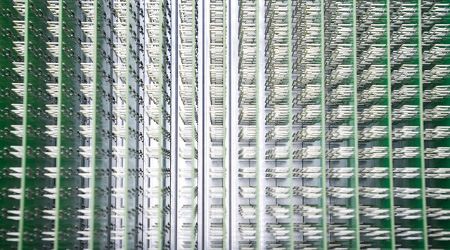Aereo Wins Appeals Court Ruling

Aereo won a 2-to-1 ruling in the United States Court of Appeals for the Second Circuit siding with a trial court judge in denying an injunction to prevent Aereo from operating during the trial. It was the broadcasters contention that transmitting TV content without proper licensing was copyright infringement. Aereo claimed that its service was no different than a television and DVR which operates via a really long cable between a screen and antenna. An analysis by the court cleared up some of the more ambiguous points relevant to the case.
"When an Aereo customer elects to watch or record a program using either the 'Watch' or 'Record' features, Aereo's system creates a unique copy of that program on a portion of a hard drive assigned only to that Aereo user," the majority ruled. "And when an Aereo user chooses to watch the recorded program, whether (nearly) live or days after the program has aired, the transmission sent by Aereo and received by that user is generated from that unique copy. No other Aereo user can ever receive a transmission from that copy."
However, Judge Denny Chin described Aereo's methods as a "sham" in a strongly worded dissent.
"The system employs thousands of individual dime-sized antennas, but there is no technologically sound reason to use a multitude of tiny individual antennas rather than one central antenna; indeed, the system is a Rube Goldberg-like contrivance, over-engineered in an attempt to avoid the reach of the Copyright Act and to take advantage of a perceived loophole in the law."
The landmark 2008 Cablevision ruling provided a game plan by which other technology companies could use the same strategy to try and prevail in court. The concept of a "remote" DVR product would now be consistent with copyright law and Aereo built its technology from scratch to use this method. By assigning a single tiny antenna and storing a single copy per user the court ruled that Aereo was not conducting a "public performance" because only one copy could be viewed per household.
This was a key element in the judges' decision since it meant Aereo was following the main concept of the Cablevision ruling. Technologically, it's ridiculous to store 1000 copies of the same TV show but legally it was important to winning in court. Now, whether of not Aereo can get customers to see the benefits of its technology is another matter entirely.







